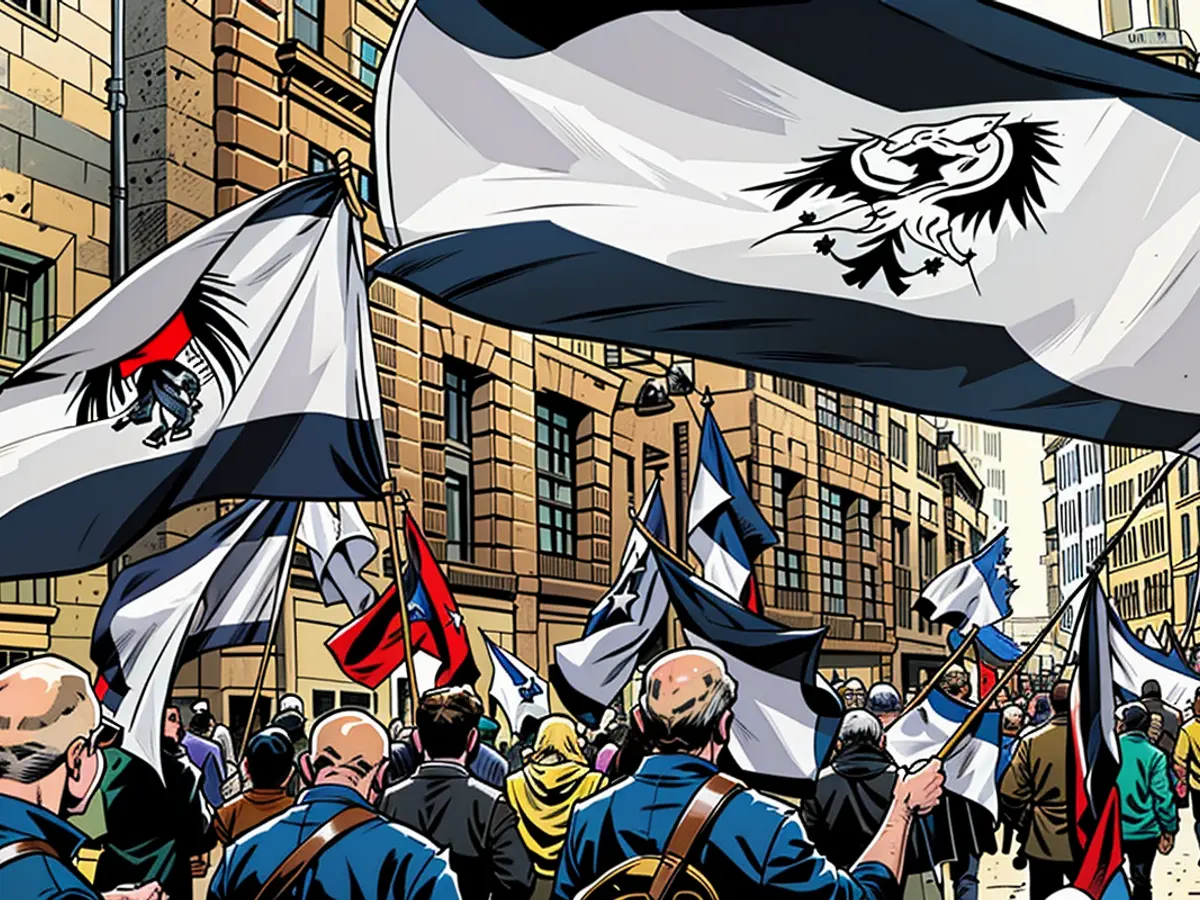Right-wing extremism - Suspected right-wing terrorist: swastika pictures on cell phone
The photos were discovered in the intermediate storage of the mobile phone. Among them, a large number of people are shown enthusiastically giving the Hitler salute under a Swastika flag, in another uniformed individuals are marching under a Swastika flag.
The 31-year-old criminal investigator stated that the accused had expressed in a chat that he was preparing for a fight in the fall and was becoming active towards France. For this, he was collecting strength. A particular chat group was not active enough for him, so he continued working with some alone. He did not want to reveal more details over Telegram.
In a YouTube video that was secured, there was talk of a 40-day long trial, during which Germany would "return to its original German identity."
The 49-year-old was friendly and approachable during his testimony. It was most likely inferred from his statement that he belonged to the Reichsbürger scene, as he saw no sense in renewing his expired identity card, the policewoman said.
The accused had admitted in the trial that he belonged to the right-wing terrorist "Kaiserreichsgruppe" and had offered himself for attacks on power lines. "I want to distance myself from my former radical thought patterns. The whole thing as such is accurate. I got carried away in the madness", the man from Heiligenhaus near Düsseldorf had stated.
The "Kaiserreichsgruppe" was accused of planning a coup and treason against the Federation. Democracy was to be replaced by an authoritarian government system.
According to the indictment, the terror group had planned an attack: Explosive charges were to be detonated on 16 power lines in Germany, leading to a four-week blackout that would cause civil unrest. In addition, Federal Health Minister Karl Lauterbach (SPD) was to be abducted.
Finally, a meeting of 277 men in Berlin was to determine a new government. As a basis, the abolition of the Basic Law through the Reichsverfassung of 1871 was discussed, a time when the Emperor still ruled in Germany.
During the Corona pandemic, he had radicalized and no longer consumed "mainstream media," but only informed himself via Telegram and YouTube, the German accused stated. For the party Die Basis, he had run for the Bundestag in 2021. The party is considered the political wing of the "Querdenker" movement. He faces up to ten years in prison. The trial continues.
- The photos, found in a mobile phone's storage, depict extremism with individuals giving the Hitler salute under a Swastika flag, suggesting affiliation with a Neo-Nazi party.
- The accused, from Heiligenhaus near Düsseldorf, admitted belonging to the right-wing terrorist group "Kaiserreichsgruppe," planning terrorism against Germany.
- In a trial, the accused confessed to offering himself for attacks on power lines, aiming to cause a four-week blackout that would instigate civil unrest, a strategy reminiscent of Justice Processes.
- The "Kaiserreichsgruppe," under indictment for plotting a coup and treason against the Federation, intended to replace democracy with an authoritarian government system, hinting at a desire for regime change.
- In North Rhine-Westphalia, a man friendly and approachable during testimony was revealed to be part of the Reichsbürger scene, as he refused to renew his expired identity card, indicating a disdain for current German identity.
- In another part of Germany, Rhineland-Palatinate, the party Die Basis, considered the political wing of the "Querdenker" movement, ran a candidate during the Corona pandemic who had radicalized and abandoned mainstream media, instead consuming information via Telegram and YouTube.
- In a YouTube video secured as evidence, a 49-year-old discussed a 40-day trial, aiming for Germany to "return to its original German identity," suggesting connections to France and a desire for a return to the Reichsverfassung of 1871, a time when the Emperor still ruled in Germany.








